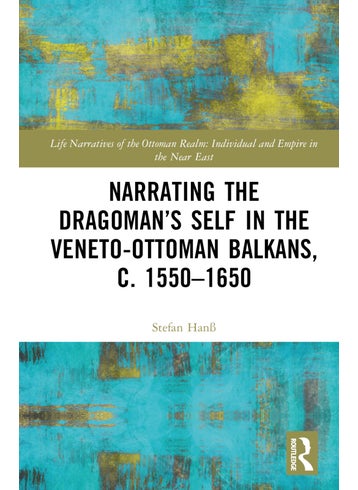استرجاع مجاني وسهل
أفضل العروض



| الناشر | Taylor & Francis |
| الكاتب | Stefan Hanß |
| اللغة | English |
| تاريخ النشر | 20230418 |
| رقم الكتاب المعياري الدولي 13 | 9780367233693 |
| تنسيق الكتاب | Hardcover |
| وصف الكتاب | This microhistory of the Salvagos—an Istanbul family of Venetian interpreters and spies travelling the sixteenth- and seventeenth-century Mediterranean—is a remarkable feat of the historian’s craft of storytelling. With his father having been killed by secret order of Venice and his nephew to be publicly assassinated by Ottoman authorities, Genesino Salvago and his brothers started writing self-narratives. When crossing the borders of words and worlds, the Salvagos’ self-narratives helped navigate at times beneficial, other times unsettling entanglements of empire, family, and translation.The discovery of an autobiographical text with rich information on Southeastern Europe, edited here for the first time, is the starting point of this extraordinary microbiography of a family’s intense struggle for manoeuvring a changing world disrupted by competition, betrayal, and colonialism. This volume recovers the Venetian life stories of Ottoman subjects and the crucial role of translation in negotiating a shared but fragile Mediterranean. Stefan Hanß examines an interpreter’s translational practices of the self and recovers the wider Mediterranean significance of the early modern Balkan contact zone. Offering a novel conversation between translation studies, Mediterranean studies, and the history of life-writing, this volume argues that dragomans’ practices of translation, border-crossing, and mobility were key to their experiences and performances of the self.This book is an indispensable reading for the history of the early modern Mediterranean, self-narratives, Venice, the Ottoman Empire, and Southeastern Europe, as well as the history of translation. Hanß presents a truly fascinating narrative, a microhistory full of insights and rich perspectives. |
| عدد الصفحات | 324 |

